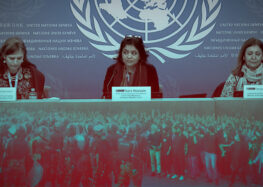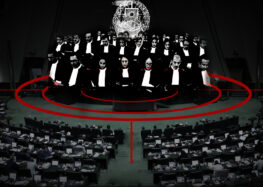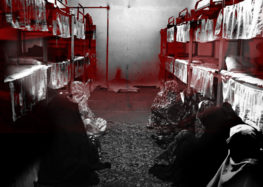Labor Activist’s Revelation of Torture During Detention Prompts Wave of Reports of Abuse in Iran’s Prisons
 Esmail Bakhshi’s lawyer says her client is under intense pressure to retract statements about his torture
Esmail Bakhshi’s lawyer says her client is under intense pressure to retract statements about his torture
Labor activist Esmail Bakhshi’s public letter in which he revealed his torture in an Intelligence Ministry detention center in Ahvaz, Khuzestan Province, has generated a wave of revelations about torture committed against political prisoners and prisoners of conscience and unleashed a debate among Iranians on social media.
Since the publication of the labor activist’s letter, Bakhshi’s lawyer has indicated that her client has come under intense pressure to retract his statements about being tortured.
Bakhshi, a representative of Haft Tappeh sugarcane workers who have been striking in protest at unpaid wages in Shush, Khuzestan Province, described his torture and resulting serious injuries in a letter posted on Instagram on January 4.
“During the first few days, without reason or any conversation, they tortured me and beat me with their fists and kicked me until I was going to die. They beat me so much I couldn’t move in my cell for 72 hours. I was feeling so much pain that I couldn’t even sleep without suffering,” Bakhshi wrote.
On January 6, 2019, Judiciary Spokesman Gholam-Hossein Mohseni Ejei claimed the authorities would investigate if Bakhshi lodged a formal complaint.
“If he files a complaint the Intelligence Ministry will pursue this matter and certainly the judiciary would investigate as well. We have to see how things go along. If he files a complaint a prosecutor would take the case and also if the Intelligence Ministry discovers any violations it would definitely inform the judiciary,” Ejei told reporters.
However, Farzaneh Zilabi, Bakhshi’s attorney, has expressed concern about growing pressures on her client.
“After mentioning torture Esmail Bakhshi has come under intense pressure aimed at forcing my client to deny what happened,” Zilabi said on January 7.
Zilabi did not specify which authorities were pressuring her client. But on December 11 when reports surfaced about Bakhshi being tortured she did demand his transfer from the Intelligence Ministry detention center in Ahvaz to the medical examiner’s office.
The suggestion that the Intelligence Ministry could be sued has brought reactions from former political prisoners and prisoners of conscience who have suffered torture at the hands of the state. They noted that it is practically impossible to bring torturers to justice and in most cases it was the victims who received punishments for publicizing the torture.
“After I was released [from more than a month in detention in early December 2004] I gave interviews and spoke to judicial authorities about being tortured,” Fereshteh Ghazi, an Iranian reporter living in exile in the US, tweeted on January 6.
“Then I was summoned by [the Tehran Prosecutor at the time, Saeed] Mortazavi and in the presence of my lawyer he told me I had to file a lawsuit, which I did. He said now that the suit had been filed I had to prove my case or else he would lock me up for a long period. So I became a defendant in my own suit.”
Taghi Rahmani, a reporter and political activist who lives in Paris after serving 15 years in Iran’s prisons, tweeted: “In 1991 I was beaten during interrogation. In fact Judge [first name unknown] Haddad had entered the room and witnessed most of the beating. When my attorney [Abdolfattah] Soltani brought up the beatings in court, Judge Haddad sued Soltani and he was sentenced to four months in prison…”
Attorney Ali Mojtahedzade suggested that to assure the public that torturers could be sued and brought to justice, the judiciary should first conclude the prosecution of those responsible for previous atrocities, such as the deaths of Iranian-Canadian photojournalist Zahra Kazemi and blogger Sattar Beheshti during detention.
Article 1 of the 1984 UN Convention against Torture forbids “any act by which severe pain or suffering, whether physical or mental, is intentionally inflicted on a person.” Iran has not endorsed the convention but torture is prohibited under the country’s domestic laws.
Article 38 of Iran’s Constitution states: “All forms of torture for the purpose of extracting confession or acquiring information are forbidden. Compulsion of individuals to testify, confess, or take an oath is not permissible; and any testimony, confession, or oath obtained under duress is devoid of value and credence. Violation of this article is liable to punishment in accordance with the law.”
In addition, according to Article 169 of the Islamic Penal Law, “A confession which is taken under coercion, force, torture, or mental or physical abuses, shall not be given any validity and weight and the court is obliged to interrogate the accused again.”
Most instances of torture for the purpose of extracting “confessions” have been reported during solitary confinement inside detention centers under the control of the Intelligence Ministry, the Islamic Revolutionary Guard Corps’ (IRGC) Intelligence Organization, or the Judiciary’s Security and Intelligence Center.
Detainees are usually released when signs of physical abuse and torture have all but healed, making it impossible to blame any of the interrogators. In court, incidents of gross mistreatment have been described by prisoners who were forced into making incriminating statements under physical and psychological abuse but judges routinely side with prosecutors in dismissing these claims.
“Can Mr. Bakhshi prove he was tortured? The state says he has to prove his claim. But how can he, even if he’s right? Others say the burden is on the state to prove him wrong. This stalemate is caused by the lack of effective independent civil society institutions, such as the bar association and media outlets,” wrote former political prisoner Abbas Abdi.
In response to Abdi, human rights lawyer Elahé Sharifpour-Hicks tweeted: “I’m surprised Mr. Abdi. You yourself have been to prison. It is very easy to prove physical and even psychological torture. Signs of torture on the body can be proven by independent doctors with photographs and necessary evidence. As for psychological torture in solitary confinement, careful interviews can be conducted by psychiatrists…”
She added: “most prisoners of conscience and political prisoners in Iran have very similar stories about their interrogation and detention. The bar association cannot play an effective role in dealing with such cases. What’s necessary is the existence of independent human rights organizations….”
Another former political prisoner, Hossein Ronaghi commented: “Sattar Beheshti had said that his interrogator had hung him on the ceiling and beat him. He was terrified about being tortured again. He had said he had been spread on the floor, his hands cuffed, with the interrogator’s foot on his head, cursing his mother and sister.”
Quoting one of Beheshti’s cellmates, Ronaghi added: “In one instance, when Sattar’s hands and feet had been tied to a chair, he came under a barrage of fists and kicks from his interrogator. The interrogator told him straight: ‘I’ll kill you. I won’t let you get out of here alive. I won’t even let your mother see your corpse…’”
Four days after Bakhshi publicly revealed his torture, the chairman of Iran’s
Parliamentary Committee for National Security and Foreign Policy, Heshmatollah Falahatzadeh, rejected the labor activist’s accusations.
In a January 8 interview with Iran’s parliamentary news agency, ICANA, the lawmaker claimed Bakhshi received his injuries in a scuffle with law enforcement agents at the time of his arrest and not under torture.
A day earlier Judiciary Chief Sadegh Larijani announced that he had dispatched an “independent” delegation to Ahvaz to investigate Bakhshi’s claims but at the same time did not rule out the possibility of a foreign plot to smear the country.
“Sometimes claims are made without any knowledge of what your rights are under the law or sometimes prisoners have this imagination that a prison should be like a hotel,” Larijani said.
He added: “Given how the media have reacted to this case, especially the reports published by enemy outlets, it can be surmised that this affair could be a continuation of the enemy’s repeated efforts to sabotage the state.”
Even though Bakhshi’s letter was addressed to Intelligence Minister Mahmoud Alavi, so far neither he nor anyone else at his ministry has commented on the case.
Meanwhile, in a post on Instagram on January 5, Ali Akbar Gorji, President Hassan Rouhani’s adviser on constitution affairs, encouraged Bakhshi to file a suit.
“It would be best if Mr. Bakhshi files his suit as soon as possible and presents his written complaint to the appropriate judicial authorities. In addition, we at the Presidential Office for the Implementation of the Constitution declare our readiness to provide help and follow up this matter. If it is discovered that a body under the president’s authority committed such un-Islamic and unlawful acts, he will not hesitate to take action.”
Meanwhile, First Deputy Parliament Speaker Ali Motahhari strongly condemned how the labor activist had been treated.
In an op-ed in Etemad newspaper on January 6, Motahhari wrote: “The letter to the Intelligence Minister from Haft Tappeh sugarcane worker Mr. Esmail Bakhshi, who was in detention for a period, should be a wake-up call for all those with a conscience and defenders of citizens’ rights who must follow up this matter until it reaches a clear conclusion.”
The MP continued: “There are still some people in the Intelligence Ministry who think that they can resort to any means to defend the state. This is shameful for a government that has come to power with slogans in defense of freedom and the people’s rights.”
The psychological and physical abuse, beatings, torture and even deaths in Iranian prisons have been documented and condemned by the United Nations and international human rights organizations.
The February 2018 report of the UN Secretary-General on Iran stated: “The Secretary-General remains concerned about continuing reports indicating that the practice of torture and ill-treatment in the Islamic Republic of Iran persists. Such reports point to a pattern of physical or mental pressure applied upon prisoners to coerce confessions….” The UN Special Rapporteur on human rights in Iran also expressed concern in his September 2018 report on Iran over reports relating to the commission of torture.






